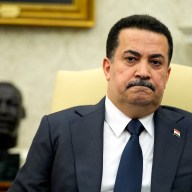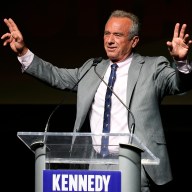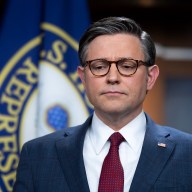SAN SALVADOR, El Salvador – A journalist from a party of former Marxist guerrillas became El Salvador’s first leftist president Monday, promising to remain friendly with the United States while restoring ties with Cuba.
Mauricio Funes brought to power the Farabundo Marti National Liberation Front that fought for 12 years to overthrow U.S.-backed governments until laying down their arms in 1992.
Members of his party applauded wildly and shouted the traditional chant of the left in Latin America: “The people united will never be defeated!”
Plucked from outside the party ranks, the bespectacled television journalist won the March 15 elections by helping the movement shed a radical image that alienated many Salvadorans scarred by civil war.
U.S. Secretary of State Hillary Clinton, who attended the inauguration, called it a testament to the strength of democracy in the Americas.
“Since Mauricio Funes’ election earlier this year, we have witnessed a peaceful transfer of power between two formerly warring parties,” Clinton wrote in Monday’s Miami Herald.
Funes, 49, replaces President Tony Saca, whose staunchly conservative government was one of the most steadfast U.S. allies in the region – the last to pull its troops from Iraq earlier this year.
Funes has promised to stay on good terms with the United States, and he has a chance at a fresh start as the first Latin American leftist to rise to power since President Barack Obama took office.
But El Salvador will no longer be a sure supporter of U.S. policies unpopular nearly everywhere in the region.
Funes has vowed to restore ties with Cuba, leaving the United States as the last remaining country in the Western Hemisphere with no formal relations with the island. And on Tuesday in Honduras, the 34 countries in the Organization of American States will vote on whether to reverse Cuba’s 50-year-old suspension from the group.
Although Obama has signalled some willingness to back away from a half-century of U.S. policy toward the country, his administration says it will not support any effort to get Cuba back into the OAS until it changes its political system.
However, the U.S. government has signalled no intention of making an issue of the new Salvadoran leader’s attitude toward Cuba, and Funes has said he will maintain the same relationship with leftist Venezuelan President Hugo Chavez as Obama has, keeping his distance but being respectful.
Chavez was attending Monday’s inauguration, but during his presidential campaign, Funes made a point of not meeting Chavez, who has kept up his anti-American rhetoric following Obama’s election.
Obama personally congratulated Funes on his victory.
Funes’ inauguration further consolidates a leftward shift across Latin America and brings a second former U.S. foe to power democratically.
Sandinista leader Daniel Ortega returned to Nicaragua’s presidency in 2006, two decades after his government fought U.S.-backed Contra rebels. Leftist governments now predominate in Central America.
Funes rose to prominence as a TV host outspoken about corruption and he has no governing experience. He inherits an economic recession, widespread gang violence, and a population bitterly polarized over his party’s rise to power.
Funes has promised fiscal austerity while raising funds for education and health care by cracking down on tax evasion and possibly imposing an alcohol and tobacco tax.
He will have to compromise both with more radical members of his party and with the outgoing Arena party, which will have enough seats in the single-house Congress to block key measures such as the budget and foreign debt approvals.














